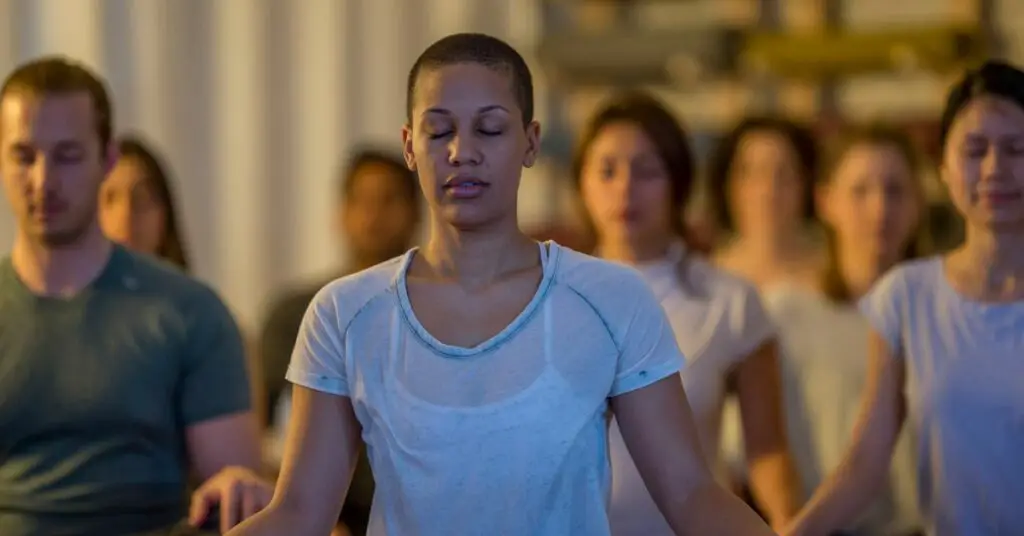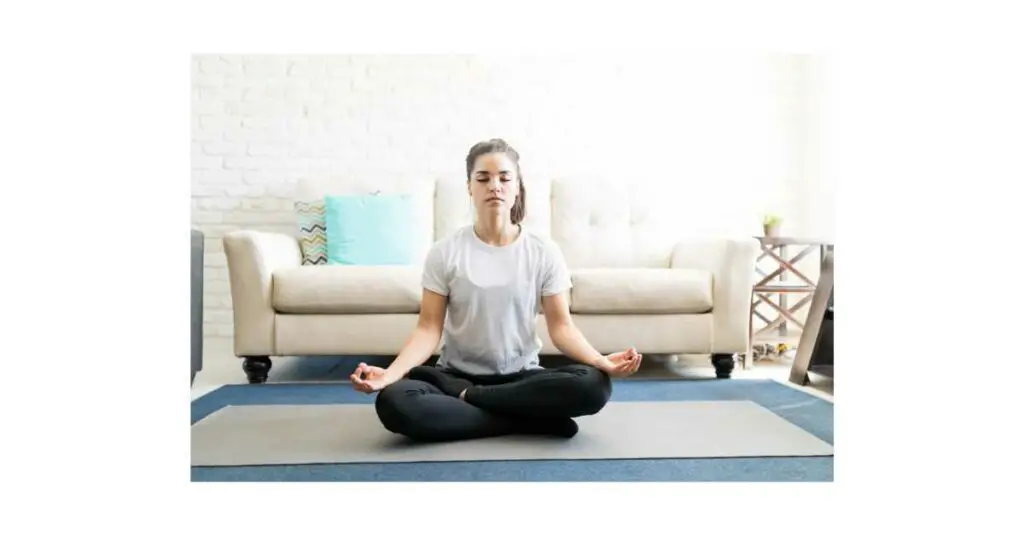Meditation has been shown to be an effective way to reduce stress and promote relaxation.
There are many different types of meditation, but the basic principle is to focus your attention on a certain object or thought and to let go of all other thoughts.
When you’re ready to end your meditation, simply open your eyes and begin moving slowly. Start by stretching your arms and legs, then get up slowly from your seat. Take a few deep breaths and take in your surroundings.
In this article, we’ll discuss some things you should know about ending a meditation. We’ll also provide some tips on how to make the transition from meditation to your daily life.
How to Enter a Meditation?
There are many ways to enter meditation. The most important thing is to find a method that works for you and to be consistent with your practice.
One popular way to meditate is to focus on your breath. To do this, simply find a comfortable place to sit or lie down, close your eyes, and focus on your breath as it comes in and out. Try to notice the sensation of your breath without judging it or changing it in any way. If your mind wanders, simply bring your focus back to your breath.
Another common method is to focus on a mantra or a certain word or phrase that you repeat to yourself. This can be done silently or out loud. The repetition of the mantra can help to quiet your mind and focus your attention.
There are many other methods of meditation, so explore and find what works best for you. The most important thing is to be consistent with your practice and to relax and let go.
When to End a Meditation?
It entirely depends on your goal for the meditation and how you feel during the session. If you are meditating with the intention of relaxation or stress relief, then you can end the meditation whenever you feel that you have achieved this goal.
However, if you aim for deeper states of meditation, it is often best to continue for a set period, such as 20-30 minutes. Ultimately, it is up to you to listen to your body and mind and to end the meditation when you feel it is time.
How to End a Meditation?
There are a few things to keep in mind when ending a meditation.
First, slowly bringing yourself back to the present moment is important. This means gradually opening your eyes and taking a few deep breaths.
Secondly, taking a few moments to reflect on your experience is important. What did you notice during your meditation? How do you feel now?
Lastly, giving yourself time to transition out of your meditation is important. This means taking a few minutes to just sit and relax before getting up and moving on with your day.
Overall, remember to be patient and gentle with yourself as you end your meditation. Take your time and savour the experience.
What to do After You Finish Meditating?
You can do a few things after you finish meditating to stay in the present moment and carry the benefits of your practice with you throughout the day.
1. Make a list of things you’re grateful for.
2. Write down your thoughts and feelings in a journal.
3. Take a few deep breaths and stretch your body.
4. Drink some water or tea.
5. Spend time in nature.
These are just a few ideas – the important thing is to find what works for you and to make sure that your post-meditation activities support your overall well-being.
How do You Know Whether Your Meditation Worked?
There’s no one answer to this question – it depends on what you’re hoping to achieve through meditation and your personal experiences.
However, there are some general signs that can indicate whether a particular meditation session was successful.
One way to tell is simply by how you feel afterwards. If you feel more relaxed, at ease, and centred, then it’s likely that your meditation was effective. You may also find that your mind is quieter and more still than usual.
Another way to gauge the success of your meditation is by how easy it was to focus on your chosen object of attention. If you found yourself easily distracted or unable to maintain focus, then it’s likely that your meditation was not as successful as it could have been.
Finally, it’s also worth considering how you feel in the days and weeks following a successful meditation session. If you find that you’re better able to cope with stress and challenges and that your overall sense of well-being has improved, then it’s likely that your meditation practice is having a positive impact on your life.
Remember, there’s no one right way to meditate, and there’s no one right way to know whether your meditation was successful. The most important thing is to simply keep practising and to be patient with yourself as you learn.
Frequently Asked Questions Related to Ending a Meditation
1. What to say to end a meditation?
There’s no single way to end your meditation sessions.
Some people like to chant a mantra or sing a song to conclude their practice. Others simply take a few deep breaths and slowly bring themselves back into the physical world.
It’s really up to you how you want to end your meditation. Just be sure that you do eventually wrap things up so you can get on with your day!
2. What should you not do after meditation?
Don’t get up and do something right away. The idea is to let all the good stuff sink in.
You’ll probably want to take a little walk or do some light stretching, but try to avoid anything too vigorous. And definitely don’t check your phone! Give yourself at least five or ten minutes before getting back to work.
3. What is the conclusion of meditation?
The conclusion of meditation is that it has many scientifically proven benefits to both physical and mental health. These benefits include reducing stress, improving sleep, boosting creativity and focus, and improving overall mood.
Additionally, meditation has been shown to help with conditions such as anxiety, depression, pain management, and cardiovascular health.












